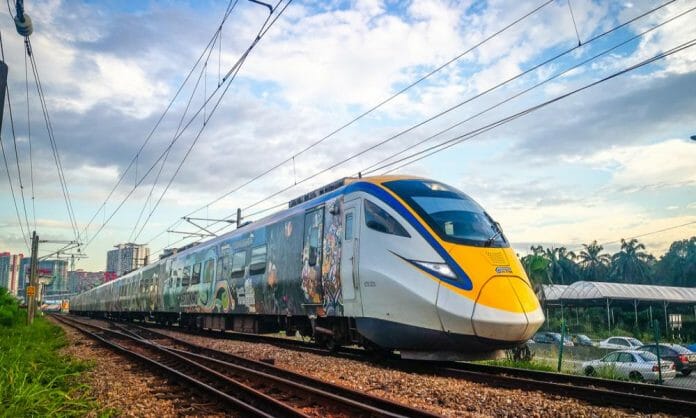The much anticipated East Coast Rail Line (ECRL) passenger train will travel at a maximum speed of 160 kilometers per hour (km/h) when it begins commercial operations in January 2027 from Kota Bharu, Kelantan to Gombak Integrated Transport Terminal (ITT Gombak), Selangor.
Malaysia Rail Link Sdn Bhd the owner of the ECRL project in its statement stated that the rail infrastructure including foundation works, rail track, rail signaling system, and rolling stock was specially developed based on the design of less than 200km/h. “Since the beginning of its construction in August 2017, the ECRL project has planned, managed, and implemented its rail infrastructure based on high-speed trains for passengers and not for high-speed trains whose speed according to industry standards is determined at a minimum of 250km/h,” according to MRL.
The operator also added the rail line of the ECRL project was designed with a horizontal and inclined curve (superelevation) and a gradient that is not equivalent to a high-speed rail track, considering that most of the lines in the East Coast states are built in areas with poor soil conditions. Accordingly, MRL insists that ECRL remains a high-speed train for passengers only and cannot be upgraded or converted into a high-speed train according to the current engineering specifications and operating system.
This comes after a Chinese expert stated that the ECRL could increase its speed to 351km/h during the ASEAN forum on the Belt and Road Initiative (BRI), MRL said this is inaccurate and misleading. MRL also emphasised that the ECRL was also designed primarily for cargo transportation, with 70 percent of the return ratio during its operation being from cargo and 30 percent from passengers. Therefore, according to the statement the increase in ECRL passenger services is largely constrained by the design requirements of freight trains.
The ECRL passenger train will be able to connect Kota Bharu with ITT Gombak within four hours when it operates in January 2027 compared to seven hours with road transport and longer during the festive season.









